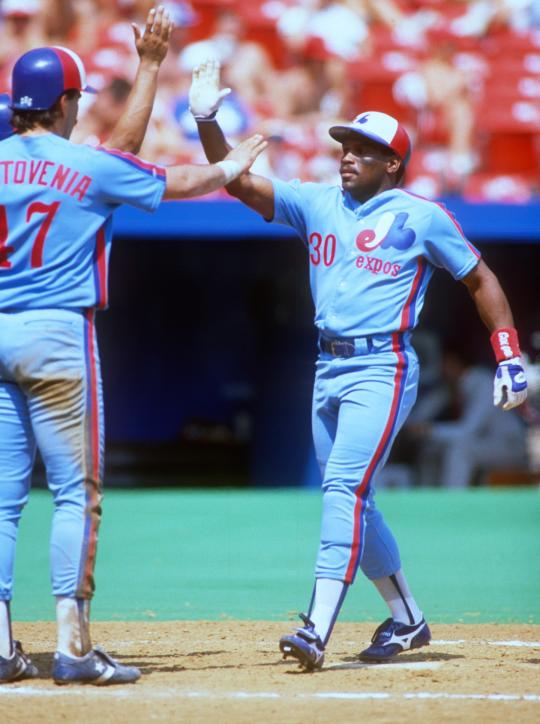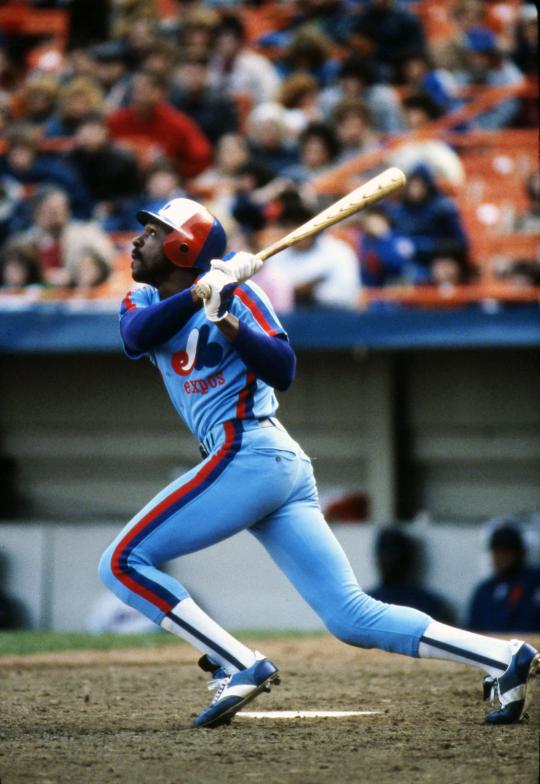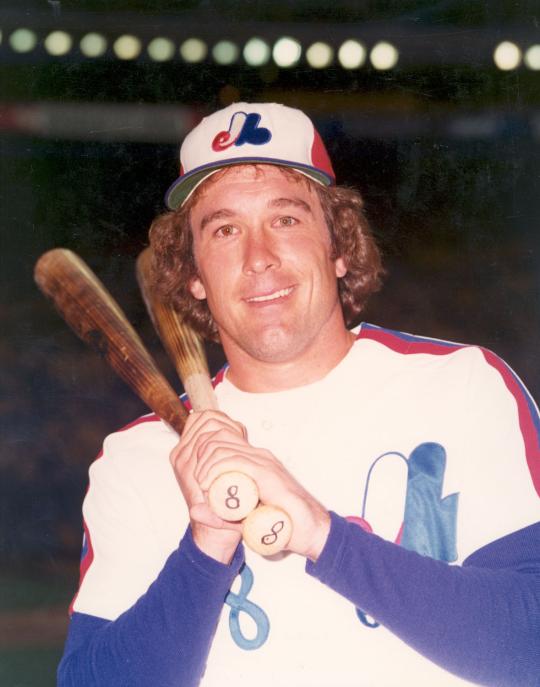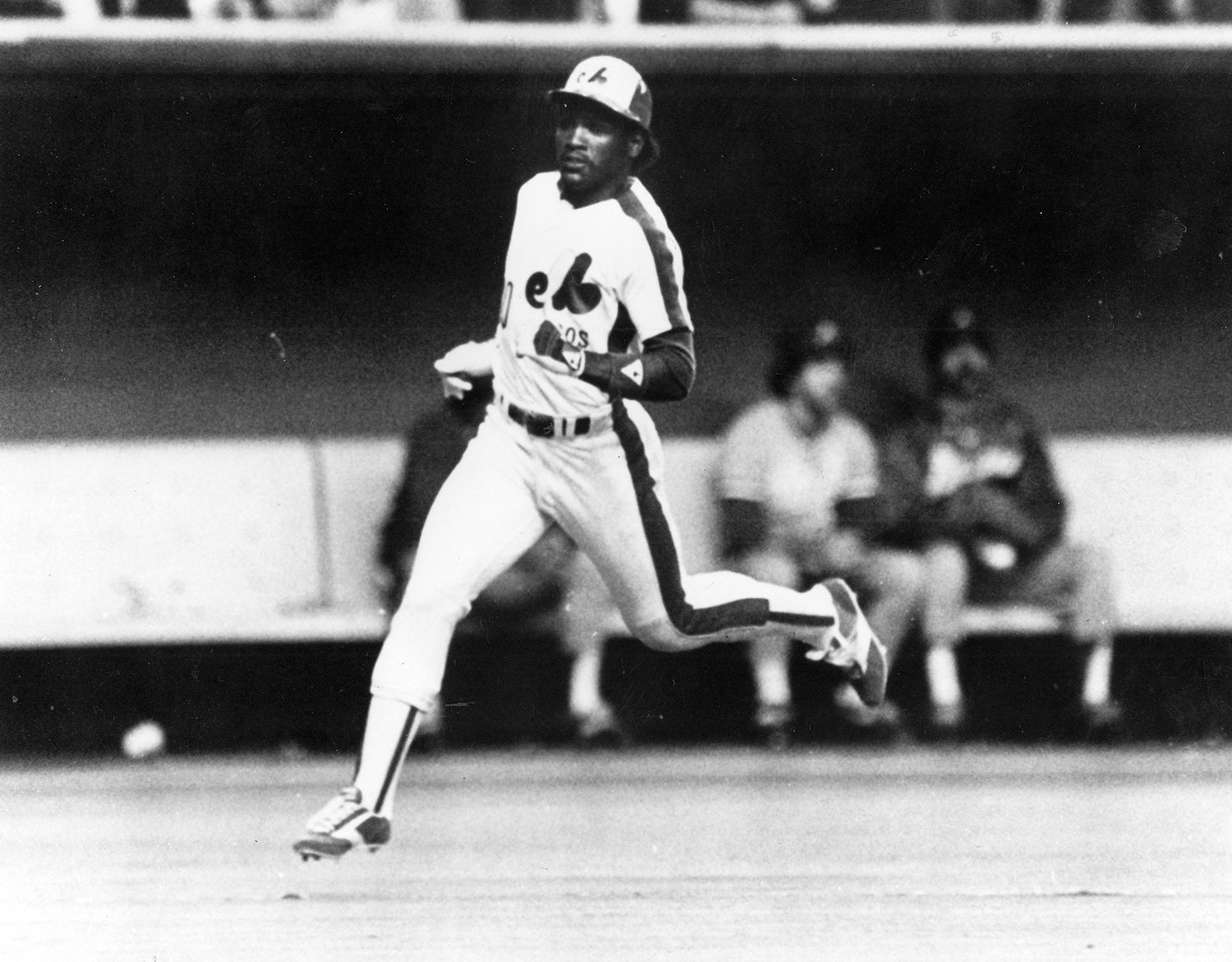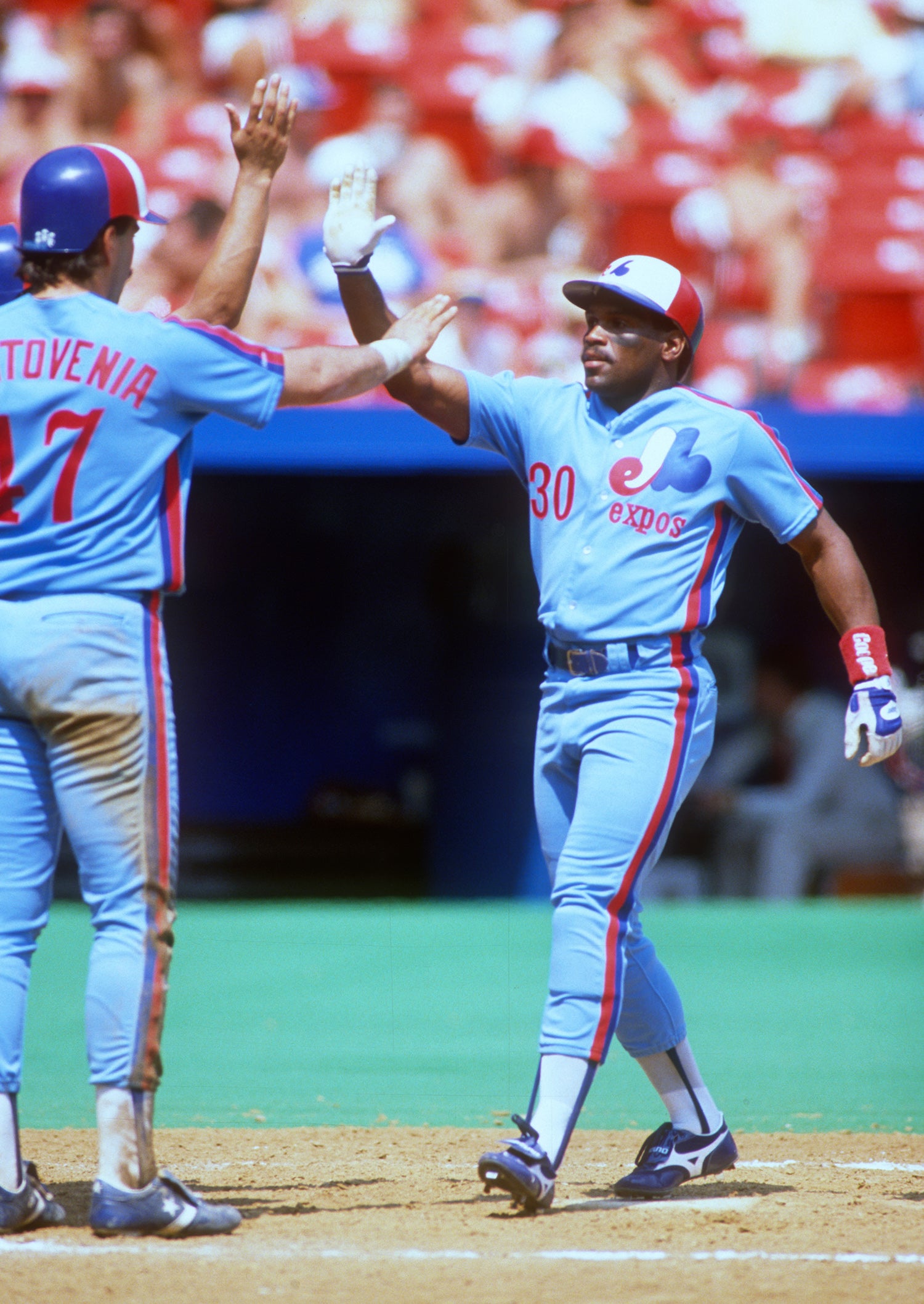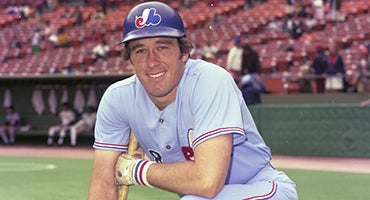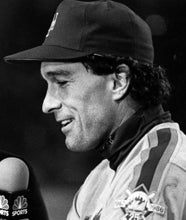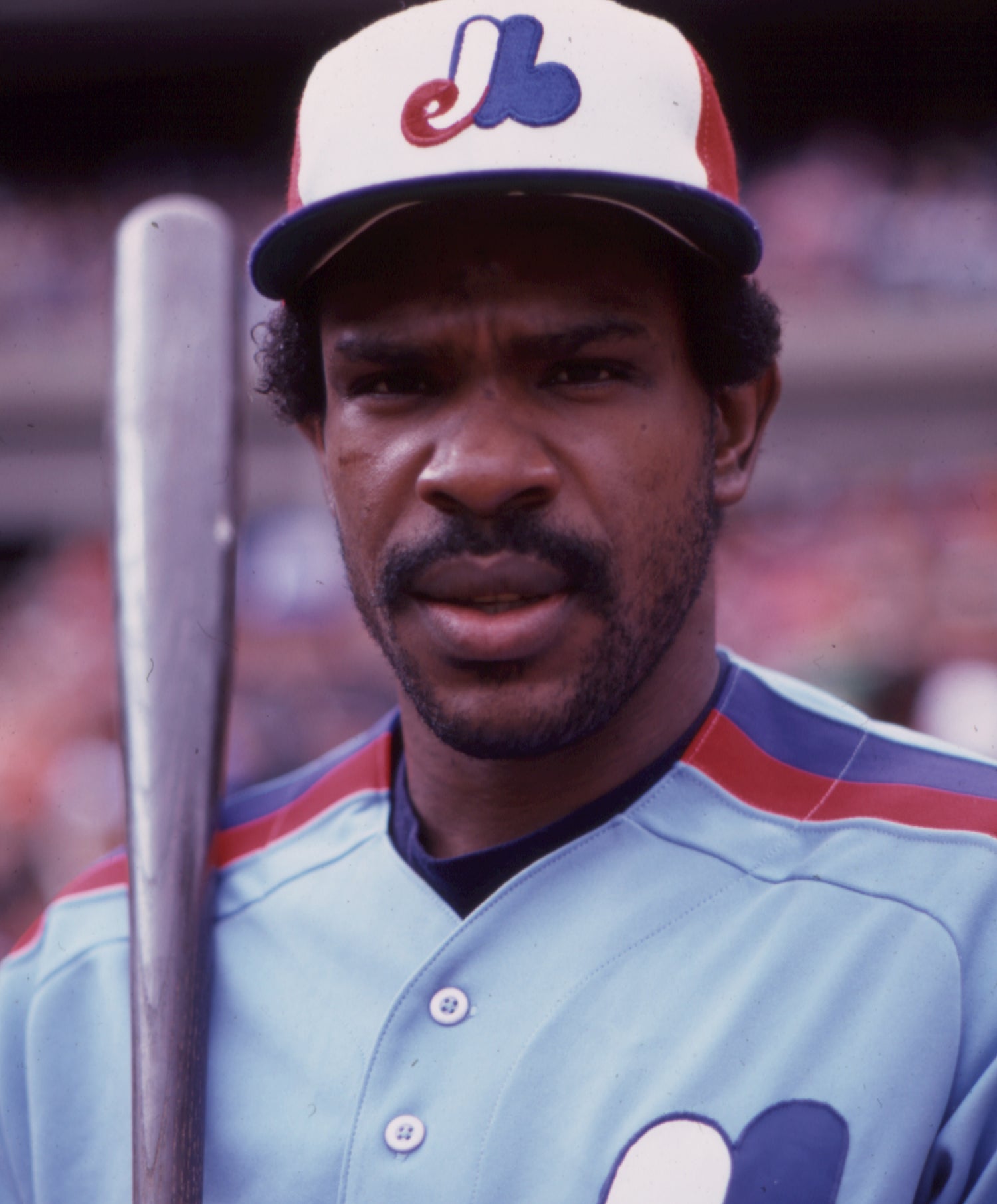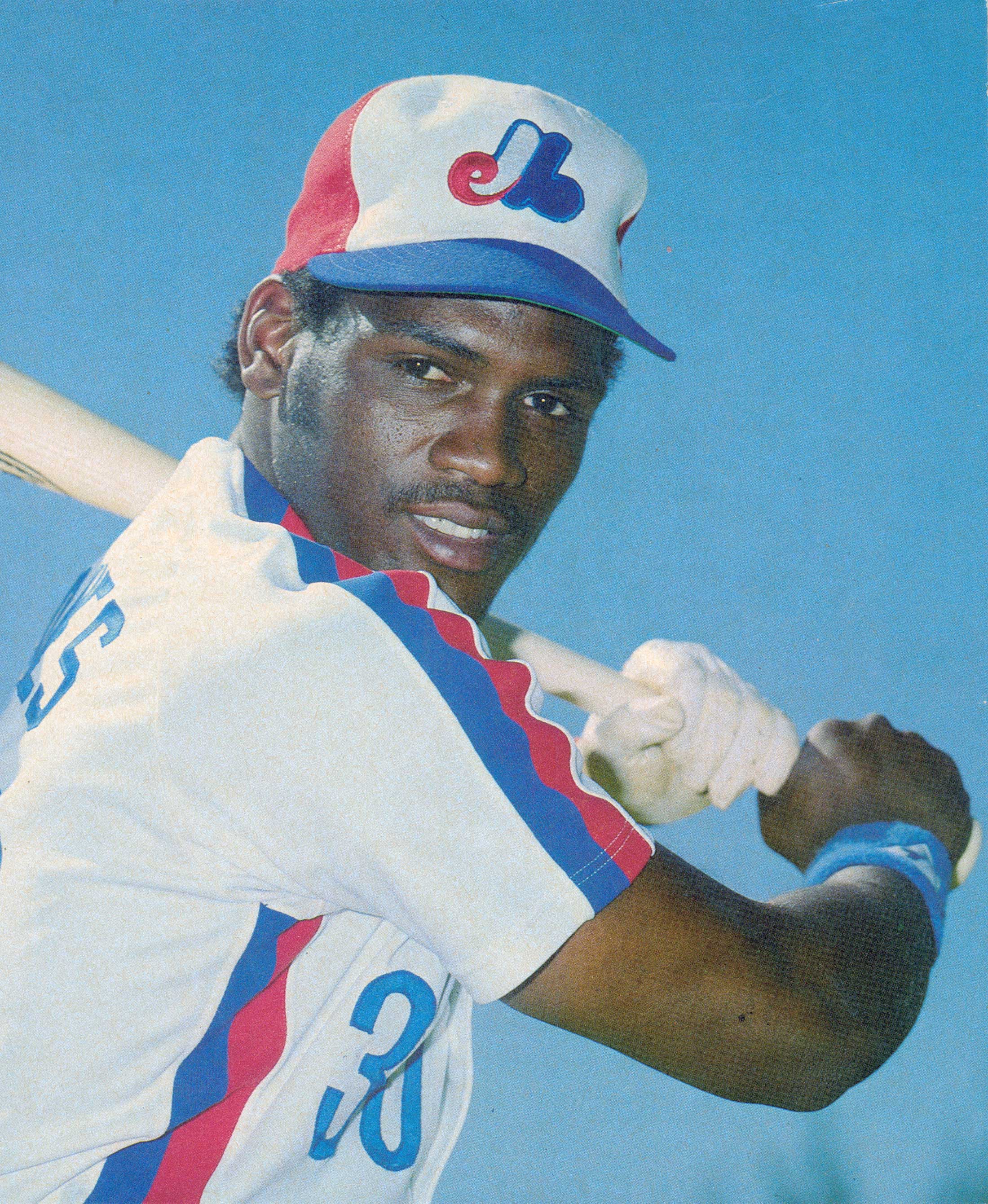- Home
- Our Stories
- Raines, Dawson recall historic run by ’81 Expos
Raines, Dawson recall historic run by ’81 Expos
“We are the champions, my friends; And we’ll keep on fighting ‘til the end;”
On Nov. 24 and 25, 1981, Queen performed two sold-out shows at the Montreal Forum. They’re preserved in a live album, Queen Rock Montreal, and an accompanying concert film, and are generally regarded as some of the band’s greatest live shows of all time.
Official Hall of Fame Apparel
Proceeds from online store purchases help support our mission to preserve baseball history. Thank you!
It seems only fitting then that Queen performed these defining concerts at the Montreal Forum in 1981, just eight kilometers along Rue Sherbrooke from Olympic Stadium, home of that year’s National League East Champion Montreal Expos.
Just as ’81 was Queen’s peak, it was also, in many ways, the pinnacle for the Expos.
Major League Baseball’s first team based outside of the United States, the Expos had their inaugural season in Montreal in 1969. Like many expansion teams they struggled in their early years, but hit their stride after a decade, finally surpassing a .500 record in 1979.
That same year, a 19-year-old second baseman whom the Expos had drafted in 1977 made his major league debut.
Tim Raines only appeared as a pinch runner that season, and was a late call-up with just 27 plate appearances the following season. But in 1981 the Rock powered onto the scene in Montreal.
“I didn’t play a game in the outfield at the professional level until I was first called up to the big leagues,” Raines recalled during a Hall of Fame virtual donor appreciation program in October. “I learned to play in the outfield at the major league level.”
The ’81 Expos opened the season favored to win their division, coming off back-to-back heartbreakers in the final weeks of the 1979 and 1980 seasons. Fueled by the future Hall of Fame trio of Andre Dawson, Gary Carter and the rookie Raines, Montreal started the season strong with a 12-4 record at the end of April, then battled their division rival Phillies and Cardinals in May and early June. “We’re not a team that explodes for a lot of runs,” Gary Carter told the Boston Globe. “We claw and scratch and put pressure on teams by making great use of our speed.” On June 11, Montreal shut out the Atlanta Braves 7-0, capping off a series sweep that saw the Expos beat the Braves by a collective 30-3. Then came the players’ strike, which lasted until Aug. 9 when the All-Star Game was held. Regular play resumed the following day. Three members of the 1981 Expos earned All-Star honors that season: Dawson, Carter and Raines, all of whom would later be enshrined in Cooperstown. Carter was named the All-Star Game’s MVP.
Led by this trio, Montreal powered into the home stretch of the season with a perfectly-timed hot streak, winning 16 of their final 24 games, including a seven-game winning streak in late September. On Oct. 3, with a 5-4 defeat of the New York Mets at Shea Stadium, the Expos secured their first playoff berth in franchise history.
Due to the strike-shortened season, the format for the playoffs had to be altered. The owners determined that the season would be split in half: The first place teams from each half within each division would square off in a best-of-five divisional series, a precursor of sorts to the League Division Series that would become permanent years later. The winner of that matchup would advance to the League Championship series.
As such, the Expos and Philadelphia Phillies faced off against each other in Montreal on Oct. 7 to begin a five-game series that would determine the champion of the NL East. “I was terrified in that first postseason game,” said Andre Dawson in a Virtual Legends of the Game event. He need not have worried. Dawson hit .300 that series with two stolen bases and he – alongside a powerhouse eight-hit, six-RBI performance from Gary Carter – helped carry Montreal to the National League Championship Series against the Los Angeles Dodgers. Unlike his teammate, Raines’ nerves were minimal. “That year I broke my hand, so I missed the Phillies part of the playoffs, but I came back and played in the series against the Dodgers,” he said.
“Coming off the injury I was excited to be back, to be playing, so the nervousness of it wasn’t really a part of it. Getting the opportunity to play against the Dodgers, I was excited.” The 1981 NLCS began in Los Angeles, at Dodger Stadium. The Expos lost Game 1, but surged back to win Game 2, handing a loss to Dodgers phenom Fernando Valenzuela, who would ultimately beat out Raines for Rookie of the Year honors. Montreal’s victory in Game 2 also marked the end of an abysmal streak for the Expos at Dodger Stadium, where they had lost 19 of their last 20 appearances. Unfortunately, the series’ Northern transition didn’t bode well for the Expos, who won their first home game but fell to the eventual World Series champions in the final two games. It would be the closest the Expos would ever get to the World Series, as another strike in 1994 foiled the Montreal’s attempt to return to the playoffs. The franchise didn’t appear in another MLB postseason until relocating to Washington D.C.
Isabelle Minasian was the digital content specialist at the National Baseball Hall of Fame and Museum

